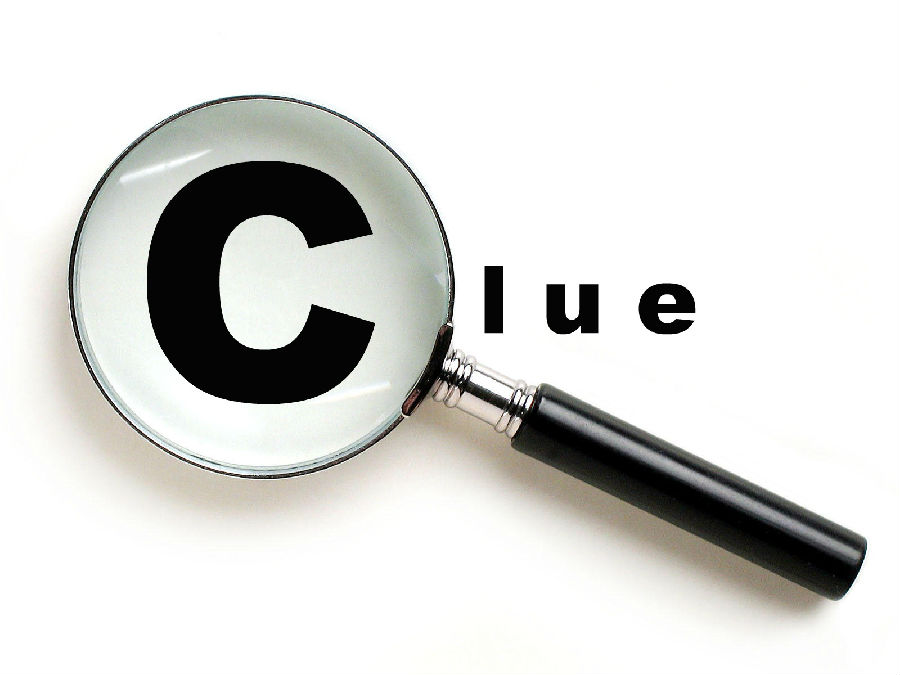Now, Words and Their Stories from VOA Learning English.
On this program we talk about words and expressions that we use in everyday conversation. Today we are going to talk about mysteries. And, more importantly, how to solve them.
So, what are the keys to solving a mystery? If you said clues, you are right. Clues are pieces of information that help you find an answer.
The word "clue" has an origin story that may surprise both native English speakers and those learning English. The origin of the word combines a Greek myth, a labyrinth, danger and knitting.

That's right, knitting!
But first, let's start with the myth. In this story, a monster called the Minotaur lived in a labyrinth on the island of Crete. From time to time, people were sent inside the labyrinth as sacrifices. They could not find their way out, and the Minotaur killed and ate them.
Except for one man.
As the story goes, Theseus volunteered to go into the Minotaur's labyrinth. But before going in, Theseus unraveled a ball of yarn. He battled the Minotaur and killed it. Then he followed the yarn back to the opening of the labyrinth and came out alive.
You may be saying to yourself, "That is a great story. But what does it have to do with the word 'clue'?"
Well, in the 1590s, a ball of yarn was called a clew, spelled c-l-e-w. Because of this Greek myth about Theseus -- and possibly other stories, too -- the meaning of "clew" began to change. By the 1620s, the word meant something that will lead to a solution. After more time passed, the spelling changed to c-l-u-e, the way we spell it today.
"Clue" continued to become even more widely used.
By the late 1940s, someone who didn't have a clue meant someone who didn't understand something. Today, we commonly use this "clue" in many expressions. You can use it to talk about someone who doesn't know a specific thing or about someone who is generally ignorant.
For example, I am organizing a surprise birthday party for my friend. She doesn't have a clue what I am planning! When the guests jump out of their hiding places and yell "Surprise!" she will be shocked.
That is a friendly use of the expression. But it can also be used in a more critical way.
For example, I could say, "I have a friend who was born into a very rich family. I feel uncomfortable when she complains about people who struggle to pay their bills on time. She doesn't have a clue how hard it can be to make a living!"
Instead of "didn't have a clue" you could also say "she is clueless" for both of these examples.
Here's another example of "clueless" meaning a general state of ignorance.
"I can't believe the boss made his son our manager. That kid is so clueless. He has no idea how this company works. We're doomed!"
That's an insult.
Now, if someone is clueless or doesn't have a clue in the sense that he or she is simply ignorant, you can tell them angrily to get a clue. This like telling them to wake up or to get with it!
You can also gently clue them in. This phrase means to let someone know the way something happens. We often use it when something is difficult to understand or see on the surface.
So, if you are simply sharing your homemade apple pie recipe with a friend, you probably wouldn't say, "I'll clue you in on how to make this apple pie." I mean, you could say that. But it sounds much too dramatic.
But let's say a friend of yours moves into the apartment building where you live. Many strange and difficult people also live in that building. You might want to pull your friend aside and say, "Look, if you want to be happy here, let me clue you in on some of the characters who live here. Never talk directly to the guy who walks his turtle. If you need to say something to him, just say it to the turtle. And don't hang your laundry on your balcony. The woman living above you will shoot at your dry clothes with a water gun. And whatever you do, DO NOT play classical music after 6 p.m. Your next door neighbor was a conductor in an orchestra and misses it terribly. You will hear him crying for hours afterward."
Now, I hope you feel a bit clued in on the different ways to use the word "clue."
And that's all for this Words and Their Stories.
I'm Anna Matteo.











